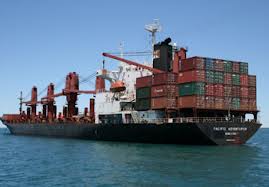The Pacific Trade Deal at Center Stage

May 2, 2015
The Pacific Trade Deal pertains to the Trans-Pacific Partnership, which is a proposed regional regulatory and investment treaty. This partnership includes twelve nations from the Asia-Pacific region: Australia, Brunei, Canada, Chile, Japan, Malaysia, Mexico, New Zealand, Peru, Singapore, the United States, and Vietnam. The proposed agreement began in 2005, and was scheduled to reach a decision by 2012, but issues over topics such as agriculture, services, and property have forced negotiations to continue into the present.
While the Pacific Trade Deal has been debated within Congress for awhile now, this week it was brought back to the forefront by the visit of Japanese Prime Minister Shinzo Abe. While visiting Congress on Wednesday, Abe urged Congress to approve the Trans-Pacific Partnership. He remarked to Congress, “The TPP covers an area that accounts for 40 percent of the world economy and one-third of global trade. We must turn the area into a region for lasting peace and prosperity.” (NPR)
Not quite everyone is behind the trade deal just yet. At a Politico-sponsored event Wednesday, Michigan’s Democratic Representative Sandy Levin explained why many Democratic lawmakers are not on the same page as Obama saying, “Trade has been one of the reasons for middle-income stagnation.” (NPR) It is not only lawmakers who remain unenthusiastic about the trade deal; unions have been working very hard to block the Trans-Pacific Partnership. Unions feel that the partnership will not be beneficial for workers, and have gone so far as to warn presidential candidates that they will not support someone who supports the Pacific Trade Deal.
Regardless of who is for or against the trade deal, before anything can be established, President Obama wants Congress to renew his Trade Promotion Authority. This allows the president to negotiate trade deals on behalf of the whole country. Then, once the trade deal is negotiated, it is presented to Congress solely for approval. No amendments can be made. This presidential authority is essential for the success of the Pacific Trade Deal, as countries are seeking assurance that amendments could not be added to such a deal at the last minute.
With the continued disagreements over the deal, the United States will just have to wait and see what will come.

































